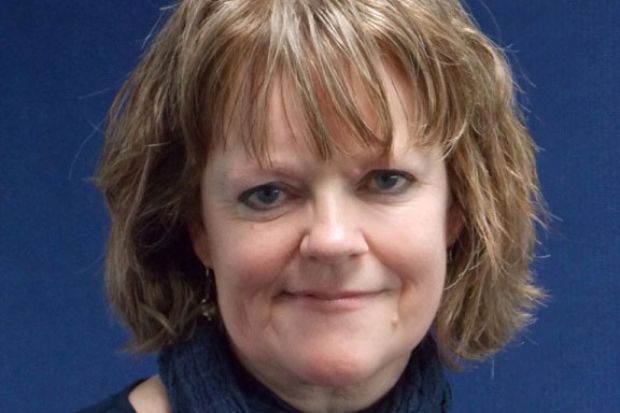Professor Samantha Twiselton, director of the Sheffield Institute for Education, Sheffield Hallam University
The inaugural director of the newly created Sheffield Institute of Education at Sheffield Hallam University has advised other universities to be “less precious” when they are responding to changes in teacher education policy.
Samantha Twiselton, who took charge of the institute at the end of June, said that reciprocal partnerships with local schools were the best way for universities to implement current government policy.
Her comments come in the wake of some higher education institutions’ criticisms of the coalition’s decision to focus more on schools-based teacher training as a route into the profession.
Professor Twiselton said that “admitting there are some things that schools can do a lot better than a university can” was one of the things that Sheffield Hallam had not “been afraid” to do.
“You have to not be precious,” she said. “I see this when I have meetings with other universities. They think we can do it all the best, but we can’t.
“There is no substitute for someone who has been at the chalk face, working with the latest curriculum and initiatives. Even if you were the best teacher in the world at the point you left school and came into a university, even six months later you would have lost some of that expertise,” Professor Twiselton argued.
She added that the investment that Hallam had made in its institute, which will have about 160 academic staff and will eventually be based in the university’s new £30 million development in Sheffield, was impressive at a time when lots of institutions are “seriously questioning whether they can carry on with teacher education”.
“As soon as word got out that I had got the job, [a large] number of deans from other universities rang me up and said: ‘How come Sheffield Hallam is investing?’” she said.
Professor Twiselton, who joined Sheffield Hallam from the University of Cumbria, where she was executive dean of the Faculty of Education, said she had some “blue sky” ideas about filling the gap that exists in special educational needs (SEN) education.
“I know from the conversations I’ve had with Charlie Taylor [chief executive of the National College for Teaching and Leadership] that there is a real desperate need in schools, and particularly in secondary schools, for highly skilled, trained special needs teachers who specialise right from the beginning of their initial teacher training,” she said.
Currently secondary school teachers qualify through a subject route and do not have the option of training as a specialist SEN teacher, Professor Twiselton said.
She argued that there needed to be “academic underpinning of SEN from training – it’s a discipline in its own right”.
At present, Professor Twiselton noted, SEN teachers typically take primary or early years postgraduate certificates in education.
“What does happen is that people will take that route, trained for primary, and get employed in a secondary school,” she said.
“But it seems a bit of a silly way to do it. Ultimately what I would like to see is the NCTL recognising SEN as a subject in its own right for secondary and primary.”
Register to continue
Why register?
- Registration is free and only takes a moment
- Once registered, you can read 3 articles a month
- Sign up for our newsletter
Subscribe
Or subscribe for unlimited access to:
- Unlimited access to news, views, insights & reviews
- Digital editions
- Digital access to THE’s university and college rankings analysis
Already registered or a current subscriber? Login




